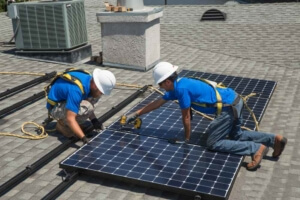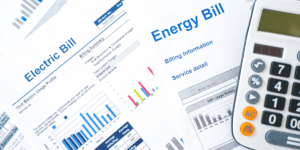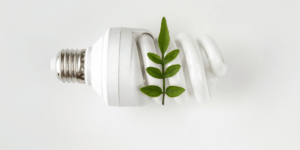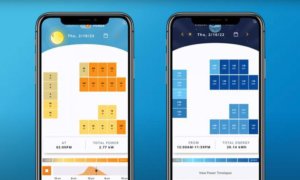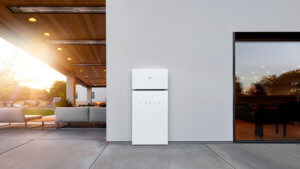Solar Industry News
Can I Install Solar Panels Myself?
More Bay Area homeowners are turning to solar to reduce their electricity bills and embrace clean energy. This has also…
15 Top Energy-Saving Strategies for the New Year
With California’s sunny skies and mild climate, more homeowners are turning to clean energy solutions and other renewable energy sources…
15 Ways to Conserve Energy and Reduce Your Electric Bill
In the Golden State of California, full of sunshine and warm weather, homeowners are always on the lookout for ways…
Energy Saving Tips for Your Home: A Comprehensive Guide for Californians
As Californians, we’re very familiar with the radiant power of the sun that graces our state nearly all year round.…
Solar Energy vs. Fossil Fuels: Comparing the Costs and Benefits
As homeowners in California, we’re fortunate to enjoy abundant sunshine for most of the year, which makes our state a…
How Much Electricity Does a Refrigerator Use?
Introduction On average, refrigerators consume between 300 and 800 watts of electricity, depending on the age of the model. Most…
What Are The Best Energy Efficient Light Bulbs For Your Home?
Introduction to Energy Efficient Light Bulbs Energy efficient light bulbs are a great way to save money on energy bills…
How Many Watts of Electricity Does a TV Use?
Introduction Knowing how much electricity (measured in watts) your TV consumes is important for two main reasons: to estimate the…
Learn More About
Solar + Battery Storage
Solar Industry News
How Much Electricity Does a Refrigerator Use?
Introduction On average, refrigerators consume between 300 and 800 watts of electricity, depending on the age of the model. Most refrigerators use between 3 and 6 amps and operate at around 120 volts. In addition to being one of the largest appliances in your home, your fridge is always on, making energy efficiency a key…
Are There Different Types of Solar Cells?
It may seem obvious to say, but not all solar cells are the same. From the type of silicon used to the design of the solar cell, there are many aspects that determine the efficiency and durability of solar panels. It can be a bit overwhelming to understand what’s out there and what’s right for…
Understanding Your Solar System Performance with the mySunPower® App
Performance monitoring is a crucial but often overlooked part of owning a solar or solar + storage system. After installation, it’s normal to be curious about whether your SunPower® solar power system is working properly and how much energy it’s producing. Here’s what you need to know about monitoring your system using mySunPower. What is…
Protected: Solar Panel Orientation
There is no excerpt because this is a protected post.
Does SunPower Offer Tesla Powerwalls?
SunPower direct does not sell Tesla Powerwalls, it offers the SunVault home battery storage solution. However, the SunPower® Equinox™ solar panels can be paired with leading battery storage solutions, including the Tesla Powerwall. This gives SunPower solar customers more options to select the best home battery for their energy storage needs. While SunPower doesn’t sell Tesla Powerwall…
What Are The Best Energy Efficient Light Bulbs For Your Home?
Introduction to Energy Efficient Light Bulbs Energy efficient light bulbs are a great way to save money on energy bills and reduce your carbon footprint. These bulbs use less energy and last longer than traditional incandescent bulbs, which means you can save money in the long run by replacing your old bulbs with energy efficient…
How Will California’s Net Energy Metering Policy (NEM 3.0) Affect Home Solar + Storage Customers?
On December 15, 2022, the California Public Utilities Commission (CPUC) passed the new net metering policy, NEM 3.0. While the benefits of the outcome are up for debate between CPUC members and solar industry-leaders and customers, NEM 3.0 will go into effect on April 14, 2023. In this post, we’ll give a brief history of…
Does Energy Storage Qualify for the Federal Tax Credit?
Introduction The popularity of home batteries has increased over the years, particularly in conjunction with the installation of solar panels. Energy storage offers numerous advantages, including serving as a backup power source during grid outages, reducing your reliance on utilities, and decreasing your electricity bills. However, home batteries can be a substantial financial investment, with…
Tesla Powerwall Home Battery Warranty Review
Introduction Home batteries allow you to store the excess energy produced by your solar panels for use at night, on cloudy days or during outages and PG&E’s Planned Power Shutoffs. Home batteries make it easier to store solar power for future use, reduce your reliance on the grid and provide backup electricity during outages. This…
Solar Battery Buyers Guide
Solar batteries are a relatively new technological advancement that is changing the way we use renewable energy. They allow you to store solar energy from the sun in a home battery for later use, meaning that you can get electricity even when the sun isn’t shining. Solar batteries provide numerous benefits, including increased energy savings,…

